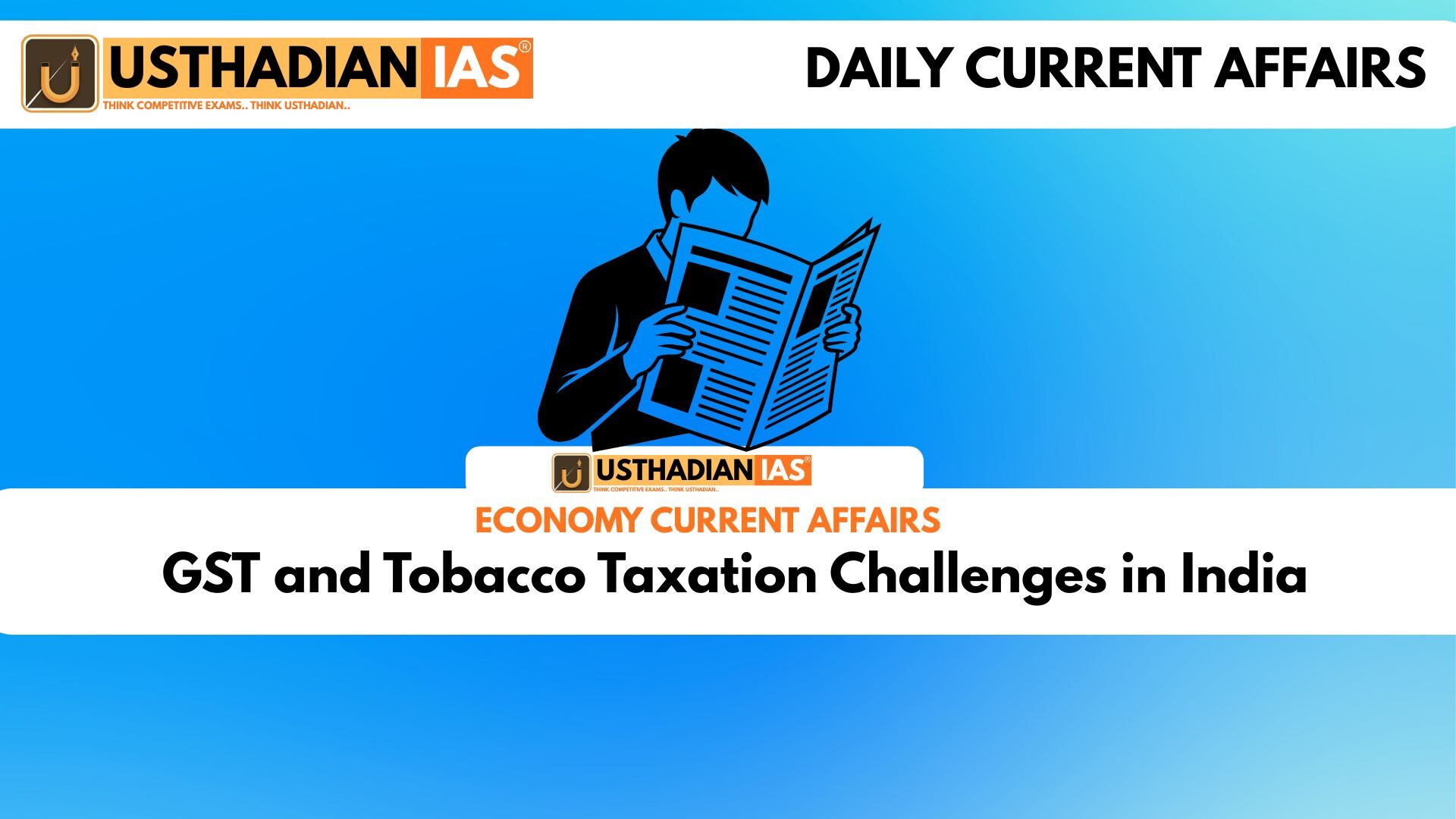GST and its role
GST and Tobacco Taxation Challenges in India: India completed eight years of Goods and Services Tax (GST) in 2025. This reform unified multiple indirect taxes into a single structure. For tobacco, GST applies along with an additional compensation cess, introduced in 2017 to safeguard state revenues. The cess is due to expire in 2026, sparking debates on its future.
Static GK fact: GST was rolled out in India on 1 July 2017 as the biggest tax reform since independence.
Importance of tobacco sector
India is the second-largest tobacco producer in the world. The sector sustains over 45 million livelihoods, including farmers and workers in allied industries. Annual tax revenue from tobacco exceeds ₹72,000 crore, while exports contribute ₹12,000 crore in foreign exchange earnings. Despite health hazards, tobacco remains a significant revenue source.
Static GK fact: The top tobacco-producing states include Andhra Pradesh, Karnataka, and Gujarat.
Impact of high taxation
India has one of the highest cigarette tax rates globally. Legal cigarettes become unaffordable, driving consumers toward illicit products. These smuggled goods evade taxes, lack health warnings, and endanger public health. This erodes government revenue and undermines anti-tobacco campaigns.
Illicit trade challenges
Illicit cigarette trade has expanded sharply. In 2023, over 25% of the market was controlled by smuggled products. In early 2024 alone, seizures worth ₹250 crore were reported, with yearly estimates near ₹600 crore. Such illegal trade caused an estimated 370,000 job losses in 2019–20. It also funds criminal activities, requiring stronger enforcement and modern detection systems.
Static GK Tip: The World Health Organization (WHO) recommends high and uniform taxes to curb illicit trade effectively.
Tax structure issues
India follows a hybrid taxation model with both ad valorem (value-based) and specific taxes. While ad valorem taxation under GST increases compliance, it also opens space for undervaluation and tax evasion. Specific taxes provide better transparency and reduce evasion. Global best practices from countries like the UK, Sweden, and Thailand favor a stronger role for specific taxes.
Future of compensation cess
The GST compensation cess was introduced as a temporary measure. With GST revenue stabilizing, its continuation remains uncertain. A sudden withdrawal may affect state finances, while an increase may harm industries. Policymakers need a balanced system that secures public health, government revenue, and farmer livelihoods.
Static Usthadian Current Affairs Table
GST and Tobacco Taxation Challenges in India:
| Topic | Detail |
| GST launch year | 1 July 2017 |
| Tobacco sector employment | Over 45 million people |
| Annual tobacco tax revenue | ₹72,000 crore+ |
| Tobacco exports | ₹12,000 crore annually |
| Share of illicit cigarettes in 2023 | Over 25% of market |
| Illicit cigarette seizures in 2024 | ₹250 crore (estimated yearly ₹600 crore) |
| Job losses due to illicit trade | 370,000 (2019–20) |
| GST compensation cess | Ending in 2026 (as per current plan) |
| Major tobacco-producing states | Andhra Pradesh, Karnataka, Gujarat |
| Global comparison | UK, Sweden, Thailand prefer specific taxation |








